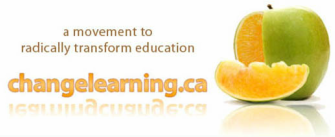Read more
|
Most people understand that the early years are an important time in a child’s development, but recent research is painting a startling picture of how the experiences and interactions that occur from conception to age six drastically affect the trajectory of children’s lives, their success in school and who they will become as adults.
Read more
0 Comments
Evidence is mounting that we arrive into the world with a genetically pre-set timetable for how we go about growing that remaining 60% of our brains – complete with sensitive or critical periods when specific parts of the brain are primed to grow and develop.
Read more Although many people have begun to understand the importance of the [[early years]] to human development, achievement and lifelong success, we have been slow to recognize the elephant in our midst—the adolescent learner. Dropout statistics, plummeting rates of school connectedness, declining academic performance and an increased dislike of school are [[signs of trouble]] underlining a disturbing pattern of disengagement as youth enter their teens. It seems that we may be [[getting it wrong]] for adolescents learners more than anyone in our schools.
Read more Human babies are born with incredibly premature brains – apparently the result of an evolutionary compromise.
Read more If young people are to be equipped effectively to meet the challenges of the 21st century it is surely prudent to seek out the very best understandings from current scientific research into the nature of how humans learn before considering further reform of the current system.
This article by John Abbott and Terence Ryan appeared in the Spring, 1999 issue of Education Canada. Punished By Rewards: The Trouble with Gold Stars, Incentive Plans, A's, Praise, and Other Bribes4/7/2008 In this groundbreaking book, Alfie Kohn shows that while manipulating people with incentives seems to work in the short run, it is a strategy that ultimately fails and even does lasting harm. Our workplaces and classrooms will continue to decline, he argues, until we begin to question our reliance on a theory of motivation derived from laboratory animals.Drawing from hundreds of studies, Kohn demonstrates that people actually do inferior work when they are enticed with money, grades, or other incentives. Programs that use rewards to change people’s behavior are similarly ineffective over the long run. Promising goodies to children for good behavior can never produce anything more than temporary obedience. In fact, the more we use artificial inducements to motivate people, the more they lose interest in what we’re bribing them to do. Rewards turn play into work, and work into drudgery.
Read more This compelling book reveals the six fundamental levels that form the architecture of our minds. The growth of these levels, four of which are deeper even than the unconscious, depends on a series of critical but subtle emotional transactions between an infant and a devoted caregiver. In mapping these interactions, Dr. Greenspan formulates the elusive building blocks of creative and analytic thinking and provides an exciting missing link between recent discoveries in neuroscience and the qualities that make us most fully human. Read more New evidence from many branches of science has significantly added to our understanding of what it means to know, from the neural processes that occur during learning to the influence of culture on what people see and absorb.
How People Learn examines these findings and their implications for what we teach, how we teach it, and how we assess what our children learn. The book uses exemplary teaching to illustrate how approaches based on what we now know result in in-depth learning. Read more |
Categories
All
Archives
August 2015
|

 RSS Feed
RSS Feed
